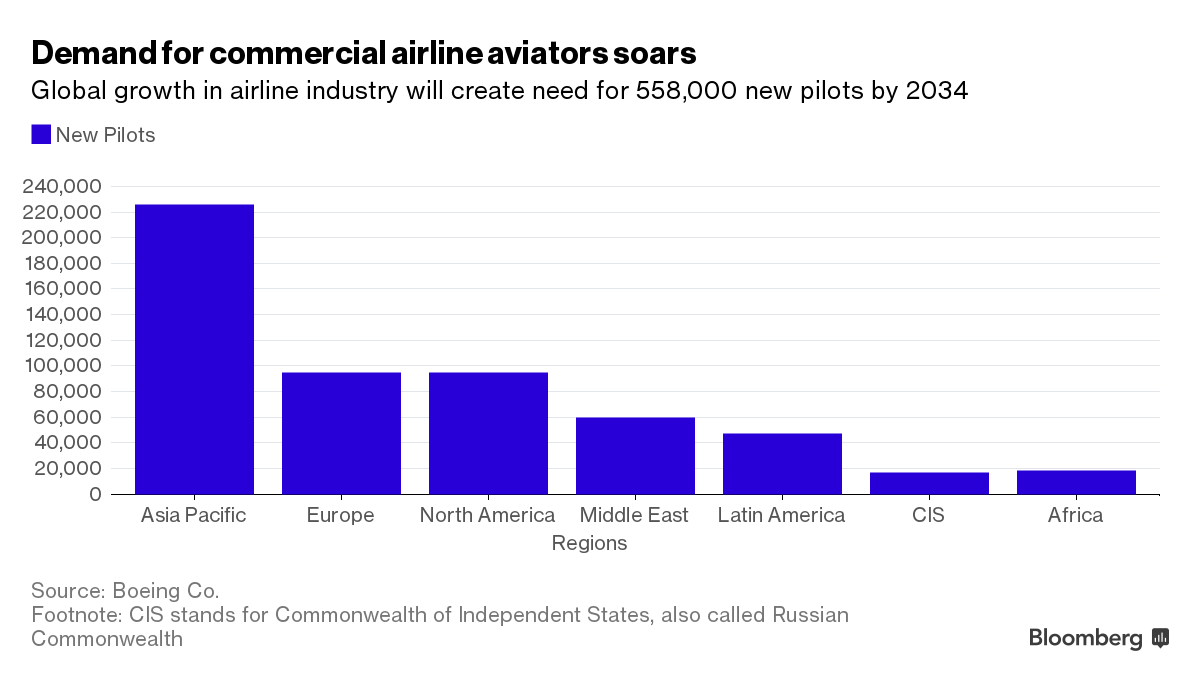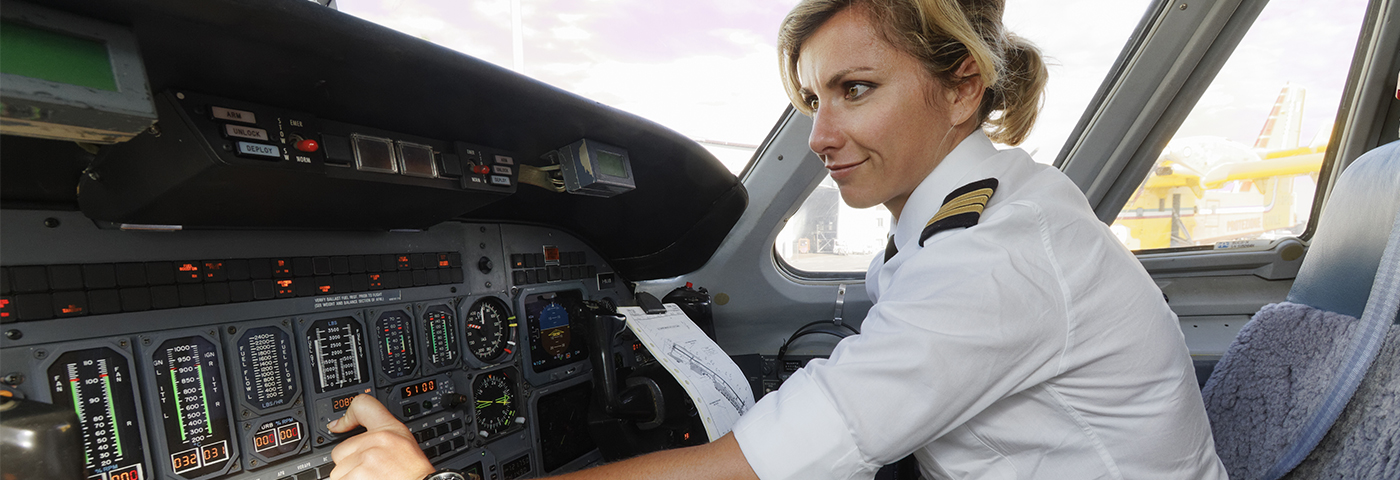Today’s guest blogger is Sarah Hanan Partner at executive recruitment firm Dunleavy White. Sarah discusses the challenging career context for women in aviation and in particular women pilots. Make sure you read on!
How often have you heard the words ‘this is your Captain speaking’ in a female voice?
Flyer magazine quoted in 2015 that the chances are that for every 32 flights you take, you will hear this only once as female pilots remain a rarity; worldwide just 3% are women.
This proportion is growing but only very gradually, however with increased focus by airlines and associations we can start to notice a change in momentum. There has never been a better time to push harder on this, globally airlines are growing with more planes in the air than ever before and a soon to be shortage of qualified pilots to fly them.
Asia is facing the biggest crisis in pilot sourcing, transporting 100 million new passengers each year means it’s going to need another 226,000 pilots in the next two decades. There was some progress on 23/2/16 with the first ever all-female flight deck crew for Royal Brunei Airlines and although it was a milestone for the airline, the pilot crew touched down in a country where women are still not allowed to drive a car. The occasion came just over three years after Captain Czarena became the first female captain of a flag carrier in Southeast Asia. She told The Brunei Times in 2012: “Being a pilot, people normally see it as being a male dominant occupation.”
“As a woman, a Bruneian woman, it is such a great achievement. It’s really showing the younger generation or the girls especially that whatever they dream of, they can achieve it,” said the captain, in an interview about the Royal Brunei Airline’s first all-female pilot crew. She completed her initial pilot training at the Cabair Flying School in Cranfield.
This achievement is not going to solve the problem alone however, and when researching there was very little evidence to show that airlines in the region are launching initiatives to attract more females to the job.
In the UK, both EasyJet and British Airways have launched campaigns this year to attract more female pilots onto the flightdeck.
Carolyn McCall, chief executive of budget airline EasyJet, told the British Air Transport Association (BATA) conference this month that the carrier intends to double its female pilot intake, from six per cent to 12, by the end of 2017.
In a push to encourage female applicants to British Airways’ Future Pilots Programme, the airline published research into what was discouraging women from becoming pilots. When asked why there are so few female pilots – two thirds of women admitting being put off the job. A fifth said they thought that women could only be cabin crew and one in ten said they were “told it was a man’s job growing up”. A fifth said they were discouraged by the fact they had only ever seen male pilots on TV and in films.
Both of these airlines realise that initiatives needs to start with schools and are supporting campaigns to encourage young women to study science, engineering, technology and maths. They are also sending their female pilots into schools and colleges to talk to pupils about their occupation who feedback that a lot of girls didn’t realise that women could fly planes! So, clearly there is much more work to be done.
The story in the USA is not as positive, In 1960, only one in 21,417 women held an “other-than-student” pilot certificate; by 1980, the ratio had become one in 4,224, the best representation of female pilots within the general population ever. In 2010 (the most recent data I could find) things had reversed back to one in 5623 women.
Wow, so much for progress!
When we compare the progress of commercial female pilots to other professions previously male dominated, the progress seems dismal. Female air traffic controllers now represent 26% of the air traffic controller population. Female flight dispatchers stand at nearly 18% of the people working in this field. Even female aerospace engineers have made greater progress. Virtually non-existent in 1960, the percentage of women making a living as aerospace engineers reached 9.2% in 2010.
Interestingly, Women of Aviation Worldwide Week claims the percentage of commercial female pilots in the USA is half of the percentage of female boat captains and operators (8.2%), a quarter of the percentage of female police and sheriff’s patrol officers (15%), and about one eighth of the percentage of female doctors and surgeons (31.8%).
So, what can we conclude today? We can see clearly that globally there is a supply issue but also an obvious solution should the airlines choose to target their marketing in the female direction. The UK carriers certainly seem to be leading the way with the global carriers slower to follow, however follow they will which makes for exciting times for women in the aviation industry.
Let’s watch those numbers grow!

